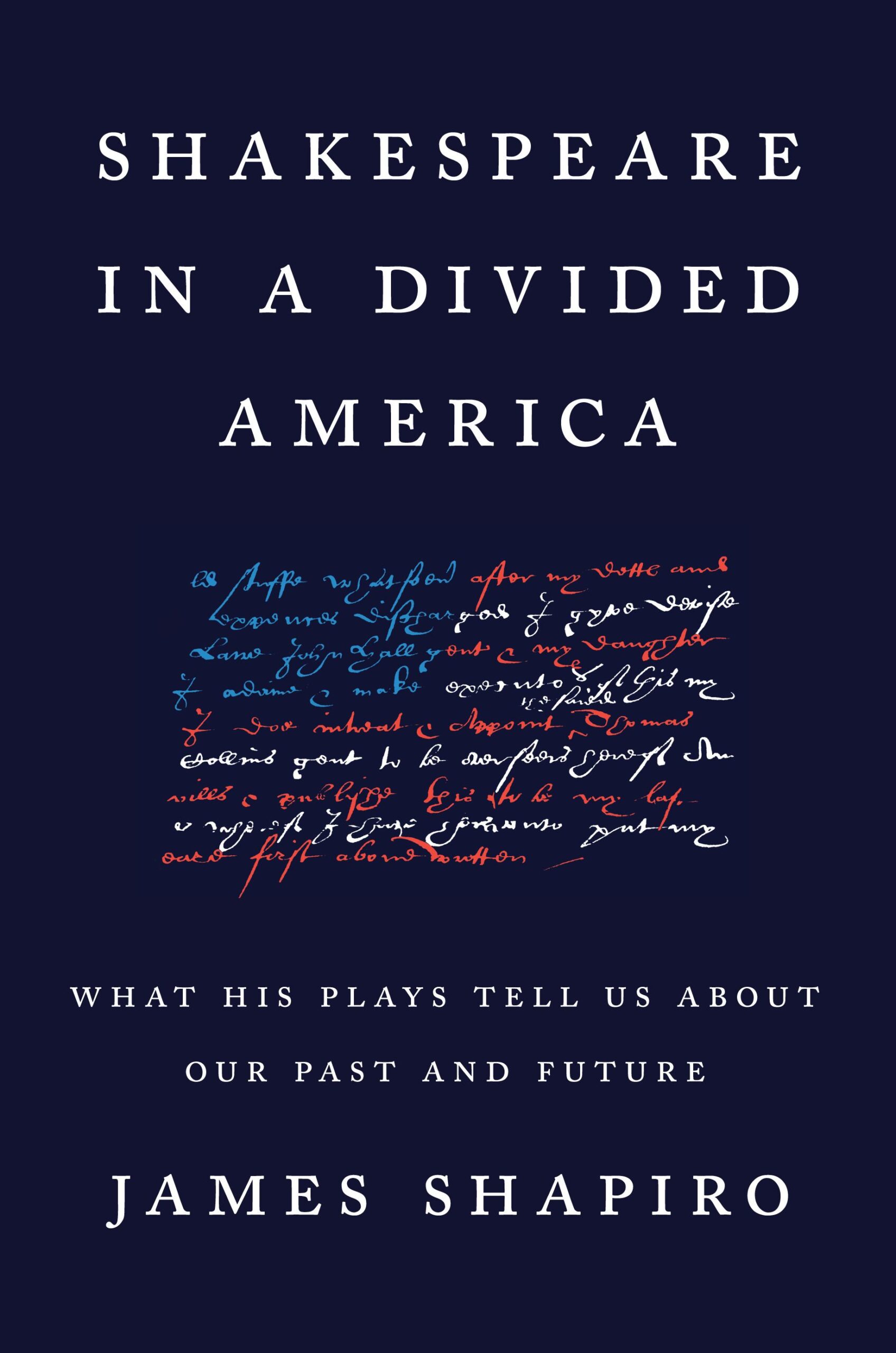Shakespeare in a Divided America: What His Plays Tell Us About Our Past and Future by James Shapiro (Penguin Press)
Although William Shakespeare lived long before England’s unruly colony tossed tea into Boston Harbor and declared its independence, Columbia University English professor James Shapiro argues that the Bard nevertheless has a great deal to say about America past and present. Shapiro brilliantly spotlights episodes in American history, providing Shakespeare as the fractured mirror of the national psyche.
Shapiro decided to write the book after the 2016 election. He visited Southern red states to talk with audiences about Shakespeare and “grapple with what, from inside my blue state bubble, I had failed to understand about where the country was heading.”
Ingeniously structured, and written with a light touch that elucidates the continuing American paradox, Shakespeare in a Divided America is thematically arranged in chapters focused on eight cultural or political conflicts in American history along with plays by Shakespeare that can speak to those frictions, articulate divisions, and give voice to the inchoate: “1833: Miscegenation,” “1845: Manifest Destiny,” “1849: Class Warfare,” “1865: Assassination,” “1916: Immigration,” “1948: Marriage,” “1998: Adultery and Same-Sex Love,” and finally, “2017: Left│Right.”
Shapiro does not simply usher audiences to designated seats and leave them to enjoy the play; he engages readers, inspiring them to see the world stage as he might lead a discussion seminar. He has a literary voice rich with wisdom, warmth, and even wit. His connections are surprising and ingenious as he explores the transformation from page to stage over time, and the relationship between performance and public sentiment—for instance, in the 1849 Astor Place riots over productions of Macbeth, with one led by a British actor and another by an American. Actor hissing at the Brit’s performance The ensuing rivalry tapped into anxiety about immigration and anti-British sentiment, with the British actor appealing to the elite and the American actor finding favor with an audience of white workers, revealing the persistent national fault line of class so deep that the New York State militia was called in to quell the riot outside the Astor Place Opera House that left more than a score dead and about 100 wounded, so much bloodshed that a newspaper deemed it “wholesale slaughter.”
Through his close, instinctive views on Shakespeare and his talent for excavating history and unearthing gems, Shapiro brings a new vantage point to an event even schoolchildren know:
the assassination of Abraham Lincoln at Ford’s Theatre on April 14, 1865.
This chapter unfolds with fugitive John Wilkes Booth on the run, on Shakespeare’s birthday (April 23) denied aid by someone he had anticipated would share his Confederate views. In a letter to this man, Shapiro points out, Booth lifted lines from a scene in Macbeth in which Lady Macbeth “upbraids her husband for his lack of hospitality”:
My royal lord,
You do not give the cheer. The feast is sold
That is not often vouched, while ’tis a-making,
’Tis given with welcome. To feed were best at home;
From thence, the sauce to meat is ceremony;
Meeting were bare without it. (3.4.32–37)
Shapiro eloquently elucidates how Lincoln acquired his unique affinity for Shakespeare’s plays and defied conventional interpretations of them. He loved Hamlet, for instance, but Shapiro writes that Lincoln insisted that Claudius’s “O, my offence is rank” soliloquy outdid “To be or not to be.”
Shapiro’s book culminates in “2017: Left│Right,” which explores the Public Theater’s Trump-as-Julius-Caesar production at New York’s Delacorte Theater because, he writes, “if Shakespeare continues to serve as a canary in the coal mine, one way of reckoning where things are heading is by looking at fresh controversies surrounding his work.” Involved with the production as an adviser, he recounts the details of the right-wing disruption and protests, and the social media campaign against the production, to highlight today’s great cultural divide.
“There has always been a tug-of-war over Shakespeare in America; what happened at the Delacorte suggests that this rope is now frayed,” Shapiro writes near the end of his extraordinary book. “When one side no longer sees value in staging his plays, only a threat, things can unravel quickly.”


